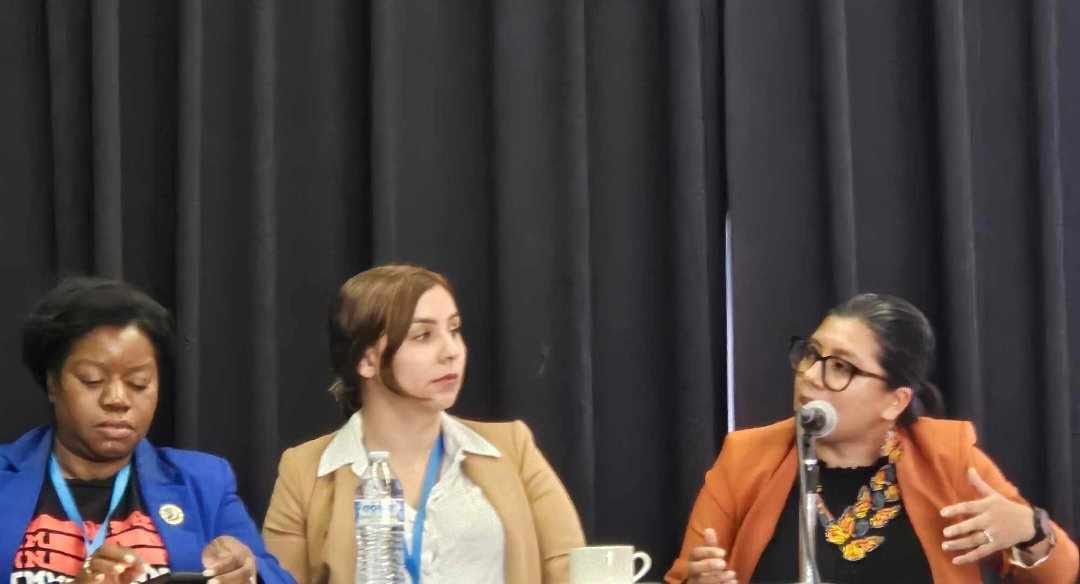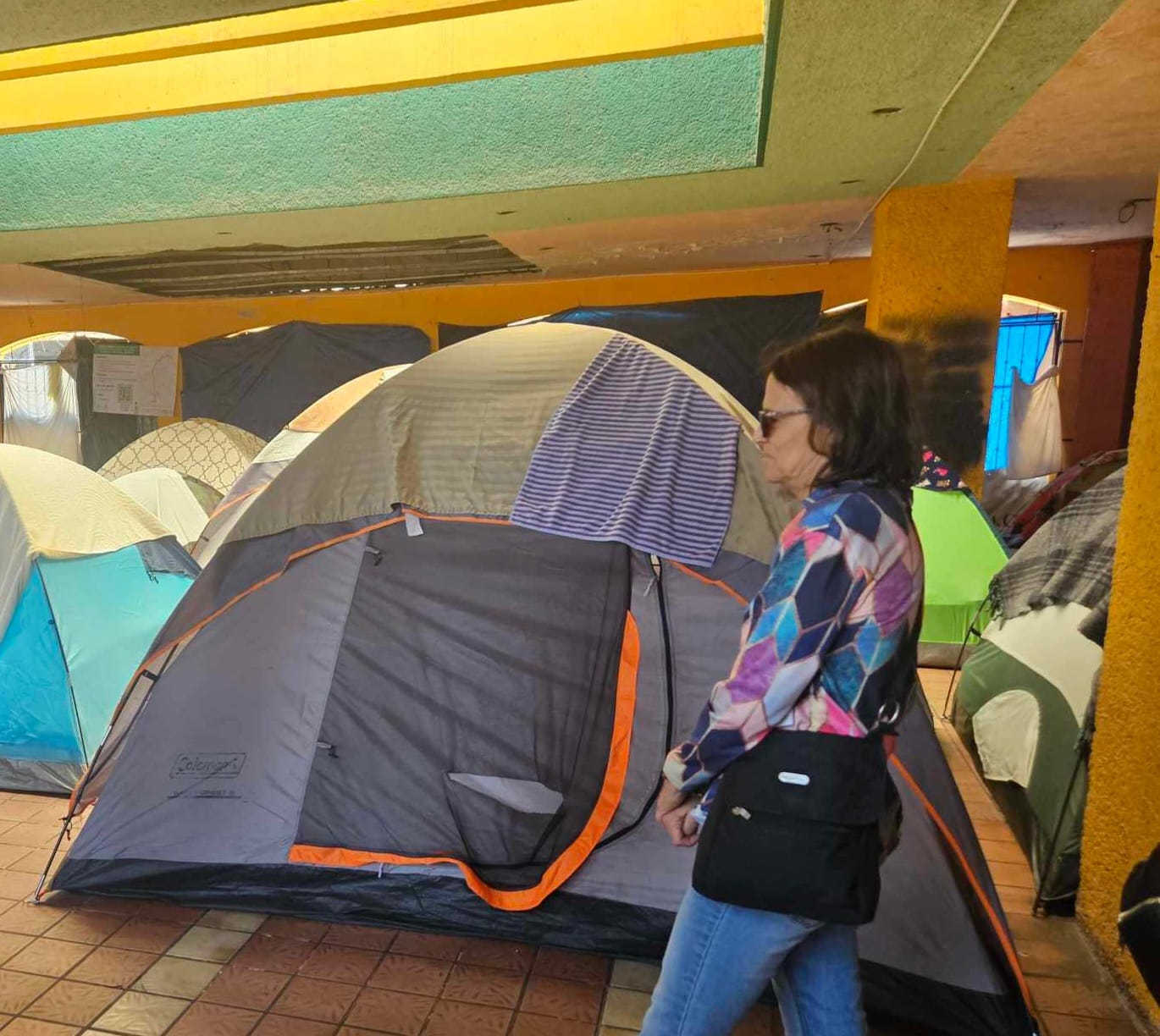
By Winona LaDuke
The border between the United States and Canada does not have to do with a river, or some other geographical feature, it has to do with a parallel, the 49th parallel. That is sort of an invisible line. That line, to many Native people who live in the north (the heart of Turtle Island) is called the Medicine Line. Great Walkers, Sitting Bull, Little Shell, Little Crow, and Chief Joseph all crossed the Medicine Line to save their people from the cavalry and the big guns. There was a belief that crossing the Medicine Line would lead one to a place of sanctuary.
To the south, there is another Medicine Line–that’s the one between the US and Mexico. At that border people also seek to cross for safety, for protection. Most of the people who come across do so because they are running from something. They are climate refugees from Haiti, political refugees from El Salvador, refugees from violence, whose families or husbands have “disappeared.” They come to the border. They come to the Medicine Line. That Medicine Line is not invisible, it’s a thirty-foot-high barrier.
People do not come to the southern border willingly, they are, by and large, driven to the border by forces beyond their control. They will keep coming. About 21 million people become climate refugees annually, from storms and droughts, and by 2050, 1.2 billion people will be climate refugees. Thank the energy companies for most of that.
I was recently at the border crossing from San Diego to Tijuana. I came with the Kellogg Foundation to see the effect of the now thirty-foot wall on refugees, on travelers, on people seeking to migrate. It is brutal.
In the Deep North, the wall and the people seem far away. Tijuana is a vibrant city full of music in the streets and restaurants, food to enjoy, the beach, and big infrastructure–lots of medical clinics. It turns out that you can get good medical care for a fraction of the price in Mexico. We traveled to the Cultural Center, which was one of the most beautiful buildings I had ever seen, a giant globe of terracotta. On a Tuesday afternoon, it was full of students, of all ages.
There’s free tuition in Mexico, that’s right, no college debt. Education is attainable to all. The country is full of promise, including the upcoming June federal elections in Mexico. There, two women and one man are the final candidates for President. Imagine, Mexico may have a woman president before the United States. That’s something to write home about.
Most people want to stay in their countries. And, if North Americans are worried about immigration, how about we help bring peace to their countries rather than destabilize them?
It’s treacherous, and deadly to travel to El Norte, and yet people do it. People are desperate to escape bad situations. Many of those situations are fueled by U.S. and Canadian interests armed with American guns. Consider this fact: For thousands of dollars a person, drug traffickers make more moving people than drugs these days.

The Kellogg Foundation Solidarity Counsel on Racial Equity group met with people working with undocumented folks, providing humanitarian services like water, food in outside detention camps (Whiskey 8), facilitating Mother and Child Reunions through the border walls, and housing women and children caught in the system. These people work with few resources and great determination. They’re inspiring.
I thought it would be great to help them out by supporting just policies for U.S. and Canadian corporations in their countries and peace.
Here are some ideas:
Pay a Fair Wage: Erica Fernandez from the Solidarity Center explains “Companies came to Mexico, so they did not have to pay union wages. Workers in the U.S. versus workers in Mexico? That’s a 9 to 1 (wage) disparity. It’s not hard to see why people would want to have the better jobs, but maybe, if there is a union in the U.S., we should be able to do better for the workers in Mexico.”
Be A Water Protector: Canadian mining corporations have staked vast claims in many Latin American countries, bringing with them human rights violations and paramilitaries. The Justice and Corporate Accountability Project found that Canadian corporations were involved in at least “10 detailed conflicts in which Indigenous people were victims of violence and criminalization stemming from a mining corporation… there were 44 deaths overall, 30 of which were labeled as ‘targeted’.”
That may just the tip of the iceberg. Today, Ecuador has among the highest violent death rate in the world, and in Colombia they kill people who protect the rainforest. In other places, U.S. corporations like Chevron poison rivers, while Canadian mining corporations destroy others. That makes more refugees.
Don’t Sell Guns: “In Ecuador, violent gangs are on their way to taking over, having recruited dozens of public officials to do their bidding, according to the country’s top prosecutor. In Mexico and Brazil, drug cartels and paramilitaries loom large over some state and local governments,” the LA Times reports.
We hold some responsibility. Over the decades, the U.S. has intervened in many of these countries, feeding unrest, and training some awful people to terrorize the villages at places like Ft. Benning, Georgia. Congressional hearings confirmed, that the trainings held in Ft. Benning’s School of the Americas “ …promoted the use of executions, torture, blackmail, and other forms of coercion…” All of these tactics violated human rights standards, to say the least, but the trainings were successful in the pain they inflicted.
Then we sold them the guns. Mexico’s Secretariat of Foreign Relations found that 70-90% of traced firearms originated from and passed through the U.S. Mexico is mad about it, and in January, sued six American gun manufacturers for $l0 billion.
There’s a lot of money in the gun trade. This January, Congressman Joaquin Castro (TX) introduced “Disarming Cartels Act” to curtail the trafficking of the U.S.-made firearms and ammunitions to Mexico. People still flee guns, just like our ancestors.
There should be peace to the south, across the Medicine Line. And those who cross should find sanctuary, as our ancestors had hoped. Let’s have peace on both sides of the Medicine Line.



